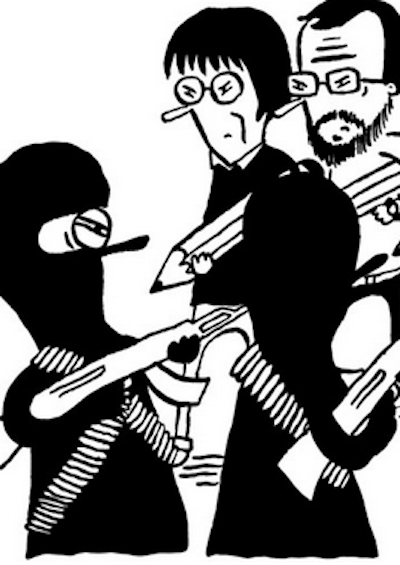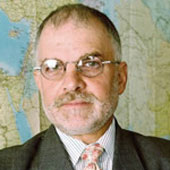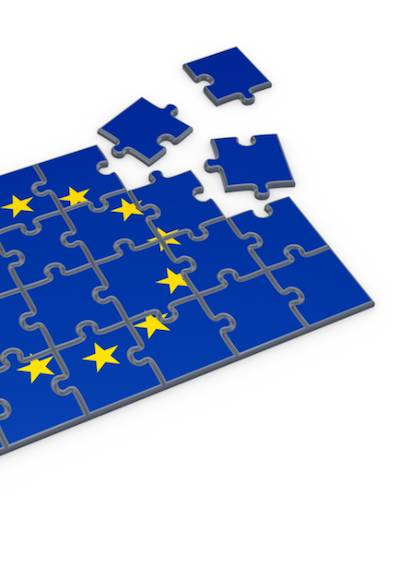Islam and the West: Clash of Civilizations?
Is the real problem between Islam and the West — or within Islam itself?
January 13, 2015

Some scholars insist that world events of the past decade and a half — including the U.S. invasion of Iraq and Afghanistan, the war between the West and al Qaeda (and more recently the Islamic Caliphate) and the acts of terrorism practiced by a very particular, extremist and violent branch of Islam — amount to a clash of civilizations.
Others disagree, arguing instead that the clash is more within Islam itself. I belong to that second school of thought. I don’t subscribe to the notion that the West is at war with Islam. Rather, I remain convinced that the problem lies among Muslims — as of course, does the solution.
Maybe what drives my convictions is the fact that I was raised in a multi-cultural, multi-ethnic and multi-religious environment where, although many argue that religion became the catalyst of two civil wars in as many decades, it was in fact politics that drove the beast.
Muslim West Beirut
In the microcosm in which I lived my formative years in West Beirut, I had the great privilege of living in an environment where Christians, Muslims, Druze and Jews coexisted in a peaceful universe where all religions blended, along with all nationalities and all races.
Growing up in Beirut, I counted many Muslims among my closest friends. Religion was never an issue. I lived in the part of town which later, when the civil war erupted, became known as “Muslim West Beirut.” I never felt as though I didn’t belong.
I don’t buy the theory of the clash of civilizations because for me the problem is clearly a matter of education. Those with better education tended to be more tolerant of the “other.” And by education I don’t mean those in possession of college degrees, because as September 11 demonstrated, that was not the case.
Several of the 9/11 hijackers had college degrees. I refer rather to the education received from one’s parents and the manner in which one is raised. When you look at the extremists — the Taliban and Co., the madrassas where hate is an integral part of the curriculum — it becomes obvious that the problem lies more between Muslims. And that is also where the solution needs to be found.
The clash within Islam
This sentiment is shared by Gijs de Vries, at one time the EU’s counter-terrorist chief in Brussels. When I interviewed him several years ago, when he still held the job of top European anti-terrorist cop, he told me he did not believe there was a clash between Islam and the West. Rather, he said, he thought the clash was within Islam.
Ali Bardakoglu, president of the Diyanet — Turkey’s highest religious authority — told me when I interviewed him in Istanbul that same year that “there are a lot of problems within Islam to resolve. If religion leads to clashes, then there is something missing,” Bardakoglu told me.
Yet, when I repeated those words to a group of visiting Muslim scholars at Washington’s American University a few weeks later, the reaction among the majority of the audience was somewhere between icy and hostile.
For the most part they resented being told that there was a problem in Islam. Several of them said it would be more correct to say that there are problems among Muslims — not within Islam.
It may be a simple matter of restructuring a sentence, but at least they half-admitted to the fact that not all is well. The first step is always the hardest to take, and in this instance the first step is to accept the notion that real problems exist and must be addressed, regardless of how the sentence is structured. One cannot run away from these problems.
Combating extremists
There are changes that need to be made if we are to avoid a clash of civilizations. But for positive change to come about, moderate Muslims — individuals and organizations — must demonstrate a concerted effort in combating extremists. Those who misquote the Holy Quran must be stopped, and moderates must explain that this is not the proper way of Islam.
Concentrated efforts must be made to root out extremism through dialogue. It is up to the leaders of the Muslim community to take concrete steps to erase the misunderstandings that have contributed in painting a negative image of what should be a religion of peace.
Editor’s note: This article was originally published by The Globalist on September 9, 2010. It has been updated by the author for publication in the wake of the shootings at the editorial offices of Charlie Hebdo in Paris.
Takeaways
Muslim scholars say that there are problems among Muslims — not within Islam.
I don't buy the theory of the clash of civilizations because the problem is clearly a matter of education.
When you look at the extremists, it becomes obvious that the problem lies more between Muslims. And that is also where the solution needs to be found.

